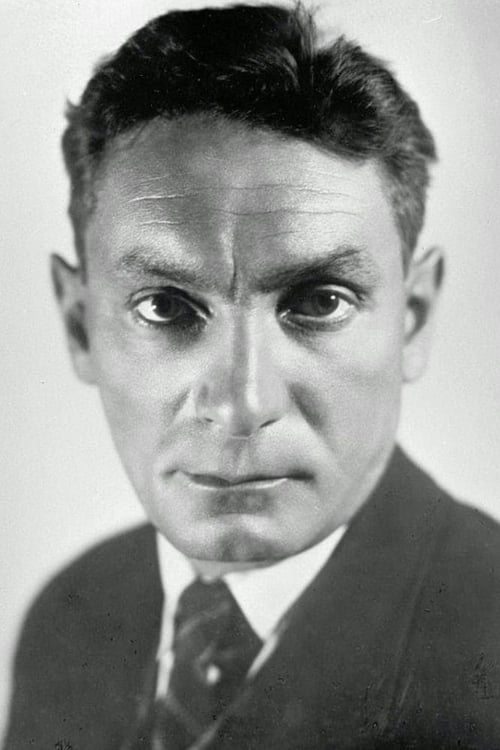Vsevolod Pudovkin
Nacimiento : 1893-02-16, Penza, Russian Empire (Russia)
Muerte : 1953-06-30
Historia
From Wikipedia, the free encyclopedia
Vsevolod Illarionovich Pudovkin was a Russian and Soviet film director, screenwriter and actor who developed influential theories of montage. Pudovkin's masterpieces are often contrasted with those of his contemporary Sergei Eisenstein, but whereas Eisenstein utilized montage to glorify the power of the masses, Pudovkin preferred to concentrate on the courage and resilience of individuals. He was granted the title of People's Artist of the USSR in 1948.
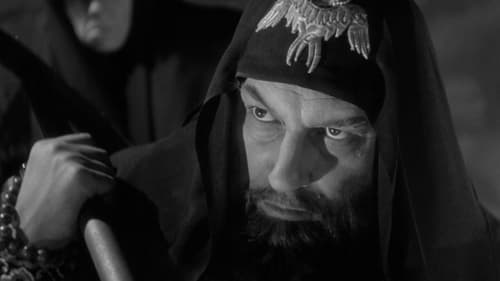
Nikolay the Fanatic
Mientras Iván el Terrible intenta consolidar su poder estableciendo un ejército personal, sus rivales políticos, los boyardos rusos, se conjuran para asesinar a su zar.
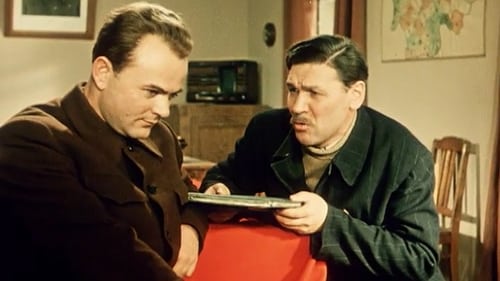
Director
Originally titled Vozvrachenia Vassilya Bortnikov, Vassili's Return was the last directorial effort by the great V.I. Pudovkin, who died in June of 1953. Like many of Pudovkin's later works, the film was diluted by interference from communist party officials; what remains, however, is well worth having, if miles removed from the brilliance of his earlier Mother, End of St. Petersburg and Storm over Asia. Based on a novel by G. Nikolayeva, the story centers upon a Russian named Vassili (Serge Lukynaov), who leaves his wife to do battle against the Germans in WW II. When Vassili is reported to have been killed in battle, his wife Avodtya (Natalya Medvedeva) marries another man. Per the film's title, Vassili returns, only to find his wife ostensibly out of his reach. Vassili and his former spouse eventually reunite as friends if not lovers, working side by side on a state-approved collective farm.

Director
A biographical film about the fate of the great Russian mechanic and creator of aerodynamics Nikolai Egorovich Zhukovsky.

Director

Prince Menshikov
A biography of a famous Russian Admiral Pavel Stepanovich Nakhimov.

Director
A biography of a famous Russian Admiral Pavel Stepanovich Nakhimov.
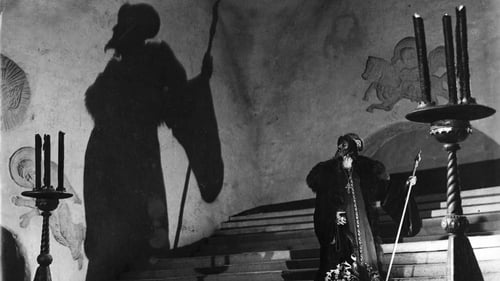
Nikola, Simpleton Beggar
Al inicio de su reinado, Iván el Terrible afronta la traición de la aristocracia e incluso de sus amigos más cercanos mientras busca unir al pueblo ruso.

Writer
Brecht's play Fear and Misery of the Third Reich consists of a series of playlets, portraying National Socialist Germany of the 1930s as a land of poverty, violence, fear and pretence. Nazi antisemitism is depicted in several of the sketches, including "the Physicist", "Judicial Process", and "the Jewish Wife".

Director
Brecht's play Fear and Misery of the Third Reich consists of a series of playlets, portraying National Socialist Germany of the 1930s as a land of poverty, violence, fear and pretence. Nazi antisemitism is depicted in several of the sketches, including "the Physicist", "Judicial Process", and "the Jewish Wife".
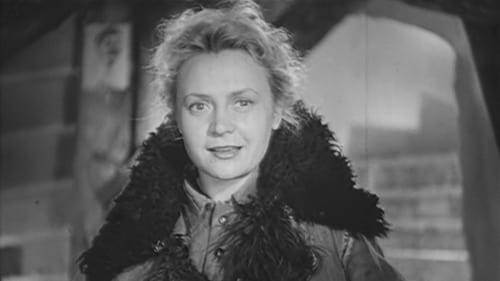
Writer
The film deals with a Russian battalion under siege by the Germans during the Second World War.

Director
The film deals with a Russian battalion under siege by the Germans during the Second World War.

German general
The film deals with a Russian battalion under siege by the Germans during the Second World War.

Director
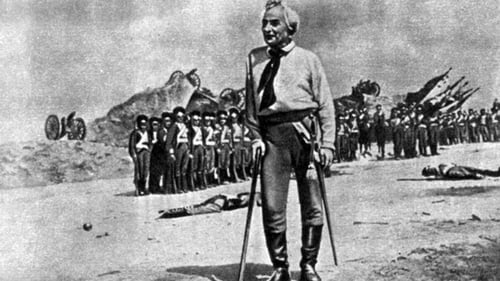
Director
Primarily a biographical documentary about the military career of Alexander Vasilvich Suvorov, who was Field Marshal of the armies of Catherine the Great and Czar Paul I. After many military successes during the reign of Catherine, General Suvorov broke with her successor, Paul I, the Mad Emperor, over questions regarding army policy. He went into retirement and wrote "The Science of Victory," containing maxims such as "Swiftness of movement accompanies victory," and "the real general is he who defeats the enemy before reaching him." The czar recalled Suvorov to become the leader of the joint armies of Russia and Austria against Napoleon.
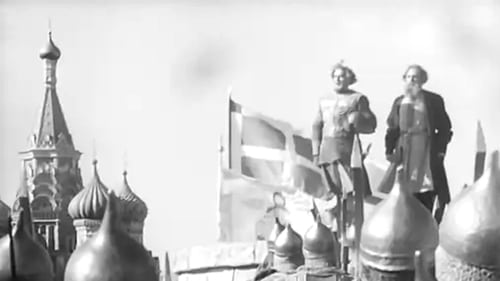
Director

Director

Director
A wise and forgiving communist leader decides to send a young worker, Karl Renn, as an international delegate to the Soviet Union after the worker had deserted a picket-line and had expressed doubts about the methods of class struggle in in his own country.

Director
As a response to criticism for the allegedly excessive “mass appeal” of his earlier epic STORM OVER ASIA (1928), Vsevolod Pudovkin unleashed his flair for experimentation in what was supposed to be the director’s first sound feature. Everything went wrong: technical problems forced him to complete the film as a silent; viewers were baffled by the lack of a recognizable plot; then, the ideological climate of the Soviet Union changed. He was now being blamed for catering to bourgeois taste! Time has come to set the record straight. Here’s lyrical cinema at its best, deliberately operatic and yet intimate as it matches the characters’ inner life with the solemn rhythms of nature, and depicted through breathtaking black-and-white photography. A sensation at last year’s Pordenone fest, Pudovkin’s long-forgotten swan song to the art of montage is resurrected by Gabriel Thibaudeau’s emotionally charged live music performance. –PCU (USSR, 1930, 75m)
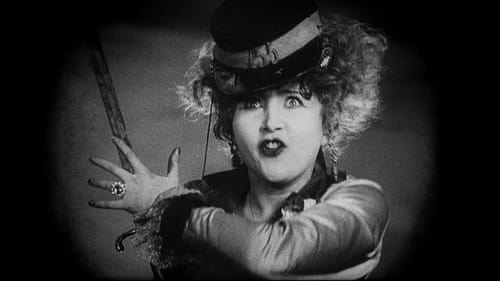
Police intendent
In the short-lived Commune of Paris, a conscripted soldier falls in love with a Communard saleswoman. As the army cracks down on the revolutionaries, the soldier is forced to fight against the Commune, and the pair's love is put to the test.

Director
Ambientado en Siberia y el Tibet durante la ocupación inglesa de esas tierras, Tormenta Sobre Asia cuenta la historia de un cazador local que es confundido con un descendiente del legendario Genghis Khan. Entonces los invasores deciden usarlo como títere político, sin saber que el cazador tiene sus propias ideas al respecto.

German Officer
Realizada para conmemorar el décimo aniversario de la Revolución de Octubre de 1917, narra los acontecimientos ocurridos en San Petersburgo, desde entonces Leningrado, a través de las vicisitudes de un campesino que llega a la ciudad intentando escapar de la miseria y del hambre.

Director
Realizada para conmemorar el décimo aniversario de la Revolución de Octubre de 1917, narra los acontecimientos ocurridos en San Petersburgo, desde entonces Leningrado, a través de las vicisitudes de un campesino que llega a la ciudad intentando escapar de la miseria y del hambre.

Director
"Though not given a New York showing until 1935, V. I. Pudovkin's Mechanics of the Brain (Mekhanika Golovnovo Mozga) was written and directed by Pudovkin in 1926. A full year in the making, this scientific documentary concentrates on the behavioral studies conducted by Prof. Ivan Pavlov. The laboratory dogs used in Pavlov's research don't seem too happy about it, and as a result this film might be hard to take for the more sensitive viewers (the vivisection sequence is particularly rough). The progress of the research is detailed with charts and graphs, hardly the "cinematic" touches one might expect from Pudovkin. Interestingly, Mechanics of the Brains was released two years before the results of Pavlov's studies were printed in book form."
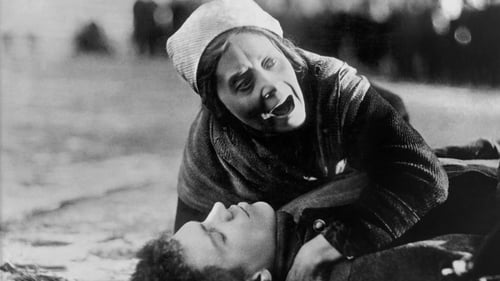
Police Officer
Adaptación de la novela homónima de Máximo Gorki, está ambientada durante la Revolución rusa de 1905. Narra los trágicos acontecimientos de ese año a través del sufrimiento de una madre por su hijo y su marido, una mujer campesina que tomará conciencia de la lucha social sólo a través del ejemplo y la tragedia.

Director
Adaptación de la novela homónima de Máximo Gorki, está ambientada durante la Revolución rusa de 1905. Narra los trágicos acontecimientos de ese año a través del sufrimiento de una madre por su hijo y su marido, una mujer campesina que tomará conciencia de la lucha social sólo a través del ejemplo y la tragedia.

Editor
A través de la historia de una pareja de jóvenes y sus desavenencias durante la competición, Poudovkine decidió hacer una sátira de la fiebre por el ajedrez que se desató en Moscú con motivo del Torneo Internacional de Ajedrez.

Director
A través de la historia de una pareja de jóvenes y sus desavenencias durante la competición, Poudovkine decidió hacer una sátira de la fiebre por el ajedrez que se desató en Moscú con motivo del Torneo Internacional de Ajedrez.

In a capitalist country, workers are heavily repressed but manage to get a "death ray" to fight back. (A part of the movie is lost.)

Art Direction
In a capitalist country, workers are heavily repressed but manage to get a "death ray" to fight back. (A part of the movie is lost.)

Assistant Director
In a capitalist country, workers are heavily repressed but manage to get a "death ray" to fight back. (A part of the movie is lost.)

Writer
In a capitalist country, workers are heavily repressed but manage to get a "death ray" to fight back. (A part of the movie is lost.)

Art Direction
Mr. West and his faithful bodyguard Jeddie visit the land of the 'evil' Bolsheviks. Through various mishaps, Mr. West discovers that the Soviets are actually quite remarkable people.

Writer
Mr. West and his faithful bodyguard Jeddie visit the land of the 'evil' Bolsheviks. Through various mishaps, Mr. West discovers that the Soviets are actually quite remarkable people.

Shban
Mr. West and his faithful bodyguard Jeddie visit the land of the 'evil' Bolsheviks. Through various mishaps, Mr. West discovers that the Soviets are actually quite remarkable people.

A down on his luck peasant goes to fight in World War I and returns home a hero
